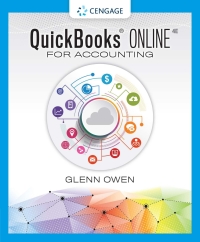Please choose one:
Long-Term Liability
Non-Current Assets
Current Asset
Shareholder's Equity
Non-Current Liability
Current Liability


Indicate whether each of the items below should be classified under IFRS on December 31, 2017, as a current or long-term liability or under some other classification. Consider each item independently from all others; that is, do not assume that all of them relate to one particular business. 1. Bank loans payable of a winery, due March 10, 2021 (the product requires aging for five years before it can be sold) $10 million of serial bonds payable, of which $2 million is due each July 31 $2 million bonds payable $8 million bonds payable 3. Amounts withheld from employees' wages for income tax 4. Notes payable that are due January 15, 2020 Payable within one year from balance sheet date Payable after one year from the balance sheet date 5. Interest payable on a note payable (the note is due January 15, 2020 and the interest is due June 30, 2018) Interest payable Note payable 6. Credit balance in a customer's account arising from returns and allowances after collection in full of the account 7. Bonds payable of $2 million maturing June 30, 2021 8. An overdraft of $1,000 in a bank account (no other balances are carried at this bank) 9. An overdraft of $1,000 in a bank account (other accounts are carried at this bank and have positive account balances) 10. Deposits made by customers who have ordered goods Assume instead that the company follows ASPE for the items that would be classified differently. 1. Bank loans payable of a winery, due March 10, 2021 (the product requires aging for five years before it can be sold) 2. $10 million of serial bonds payable, of which $2 million is due each July 31 $2 million bonds payable $8 million bonds payable 3. Amounts withheld from employees' wages for income tax Notes payable that are due January 15, 2020 Payable within one year from balance sheet date Payable after one year from the balance sheet date 5. Interest payable on a note payable (the note is due January 15, 2020 and the interest is due June 30, 2018) Interest payable Note payable 6. Credit balance in a customer's account arising from returns and allowances after collection in full of the account 7. Bonds payable of $2 million maturing June 30, 2021 8. An overdraft of $1,000 in a bank account (no other balances are carried at this bank) 9. An overdraft of $1,000 in a bank account other accounts are carried at this bank and have positive account balances) 0. Deposits made by customers who have ordered goods








